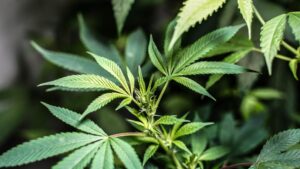Even a planned sacrifice can use a little help, here is how marijuana can help you during Lent
Today is Ash Wednesday and the start of Lent. This time is observed in many Christian traditions, including Catholic, Lutheran, Moravian, Anglican, United Protestant, and Orthodox. It is usually a 40-day period, which echoes the time Jesus spent fasting in the desert. The time is thought to symbolize testing, trial, and renewal. In addition to donating time, talent and treasure along with self reflection, the true believer believes you should give us something you love. For some it is wine or alcohol, for others it could be more.Here is how cannabis can help you during Lent.
RELAETD: Is GERD Helped By Cannabis
Cannabis use during Lent, a traditional Christian period of fasting and spiritual reflection, is a complex and controversial topic requiring careful consideration. While some may view cannabis as incompatible with Lenten practices, others argue it can potentially aid in spiritual growth and personal reflection when used mindfully. Done correctly, it can help you reach your goals.

Studies suggest cannabis can be used as a replacement for alcohol and can improve overall health. It offers a range of benefits for those seeking to reduce or eliminate their alcohol consumption. CBD and THC drops are becoming popular substitutes, providing natural relaxation without the negative side effects associated with drinking. Unlike alcohol, which can lead to dehydration, impaired judgment, and potential long-term health risks, cannabis promotes relaxation and improved sleep quality without causing hangovers.
Studies suggest cannabis may help individuals maintain alcohol abstinence, with some patients reporting it as an effective substitute. The trend of replacing alcohol with cannabis is growing, with daily cannabis use surpassing daily alcohol use in the United States for the first time. Cannabis-infused beverages are also on the rise, offering a diverse range of options for those looking to socialize without alcohol.
In addition, many adherents of Lent are older, and a key benefit of cannabis is relief. For those dealing with chronic pain or anxiety, cannabis may offer relief without breaking Lenten commitments to abstain from other substances. Medical marijuana users have reported significant improvements in quality of life, pain levels, and overall functioning. This could allow individuals to focus more deeply on their spiritual practices without being hindered by physical discomfort.
Part of the sacrifice is to reflect on the spiritual journey. Cannabis can promote introspection and heightened awareness, which aligns with Lenten goals of self-examination and spiritual growth. However, it’s crucial to approach this mindfully and avoid using cannabis as an escape or distraction from the purpose of Lent.

 Cannabis News2 years ago
Cannabis News2 years ago
 One-Hit Wonders2 years ago
One-Hit Wonders2 years ago
 Cannabis 1012 years ago
Cannabis 1012 years ago
 drug testing1 year ago
drug testing1 year ago
 Education2 years ago
Education2 years ago
 Cannabis2 years ago
Cannabis2 years ago
 Marijuana Business Daily2 years ago
Marijuana Business Daily2 years ago
 California2 years ago
California2 years ago


























